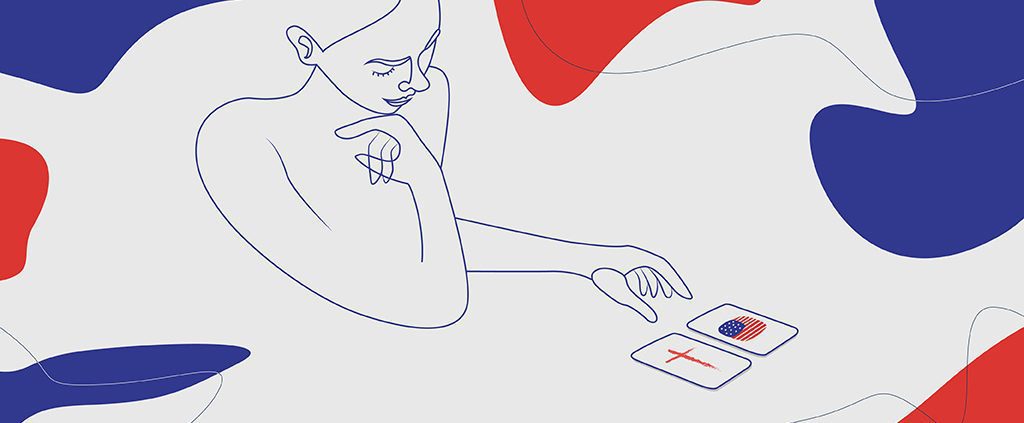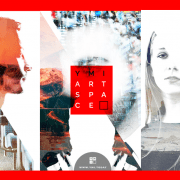Jesus Doesn’t Celebrate the 4th of July
Written by Q. Jackson, USA
When my plane touched down at my port of entry to the United States after four months of studying abroad, I made my way with the crowds to the customs and immigration line. Right away, my eyes fell on the label for a special, dedicated line that read, “US CITIZENS”.
Anticipation and delight swelled up inside of me. I was home! This was my country! There was familiarity here . . . and predictability! I could speak my own language, use my cultural references, and finally be free from working so hard to communicate every moment of every day. Right then, I embraced my identity as a US citizen with enthusiasm, walking with my head held high through the special line, labeled just for me.
In recounting my travel experience, I’ve often joked that this moment was the time I’ve felt most patriotic in my entire life. While my appreciation for my country that day had more to do with the fact that “America” and “home” were synonymous in my mind than any sort of extreme patriotism, it does still cause me to think about what I value about my citizenship, and more importantly, how much I’m valuing it.
I live in a country where sometimes, Christianity and our national identity are so tightly wound, the two seem to conflate.
When the line between faith and nation gets too blurry, it’s easy to (intentionally or not), begin to place faith in institutions, principles, or political parties that are imperfect and can distract us from the ultimate kingdom we owe our allegiance to—God’s!
So, as I consider my country and all that it means to me, I’ve found that it’s helpful to constantly check my loyalty—whether it’s to a country, people group, celebrity, sports team, or the like—against two standards that can help us focus our delight and satisfaction where it belongs.
1. Thankfulness that leads to humility, not pride
A big part of the 4th of July celebration for me has always been to think of all that is great about being a citizen of the US. I’m thankful that we have freedom of speech to protect the right to voice unpopular opinions. I never want to take for granted the religious liberties I’m afforded, or the heroic sacrifices that have been made by servicemen, women, and their families that allow me to live and work in peace. I owe a deep sense of respect to those who have fought for the freedoms I enjoy.
But as I revel in the blessings that God has poured out, I remind myself that none of them are mine to claim. When we experience blessings, it’s easy to start convincing ourselves that we actually deserve them, and begin to expect more of them. Expecting blessings can make us feel entitled to them when, in reality, we’re not.
So as I think about my country, I want thankfulness to lead me to humility instead of pride, remembering that I don’t earn or deserve any of these blessings.
“Every good and perfect gift is from above, coming down from the Father of the heavenly lights, who does not change like shifting shadows.”
I pray that my thankfulness—not just about my country, but in all things—turns my eyes to the One who gives perfect gifts. I will direct my thanks to God because of the great mercy He has given me. Every single good thing that I experience is from God. He is the only one worthy of my heart’s praise.
2. Assurance of where our truest allegiance lies
Even in the midst of decking out in red, white, and blue every year and celebrating how far our nation has come, I can’t help but acknowledge that there remain great injustices. Especially in 2019, marriage, sex, and life—which should be held in a sacred light—have been marred and contorted by society’s modern ideals. Centuries of institutionalized racism means that the impact of discrimination based on race is still active, causing all sorts of injustices and undue burdens.
These sobering realities are a stark reminder that my country, and every single human-built entity, is so broken—plagued by the curse of sin in this world. No country, institution, or political party can address our needs and heal our wounds fully—only God can. And this means that my full allegiance and hope should be in God alone. Paul reminds us in Philippians that our true citizenship—the one we should be most focused on—is in heaven
So this 4th of July, as many of us take time off from work, travel to attend parades and celebrate being an American, let us remember our identity in Christ first and foremost. May it keep our national identity from becoming an idol, and inspire us to adopt God’s global-minded concern for loving and serving others. And every day for everyone, may all of our other loyalties fall into their rightful place, paling in comparison and leading us into thankfulness and assurance of our place in God’s global body.
Lord, let Christians’ identity as members of Your eternal kingdom drive them to seek Your will in loving and serving their neighbors both near and across the globe, always holding their heavenly citizenship before any other loyalty.










We’ll put!